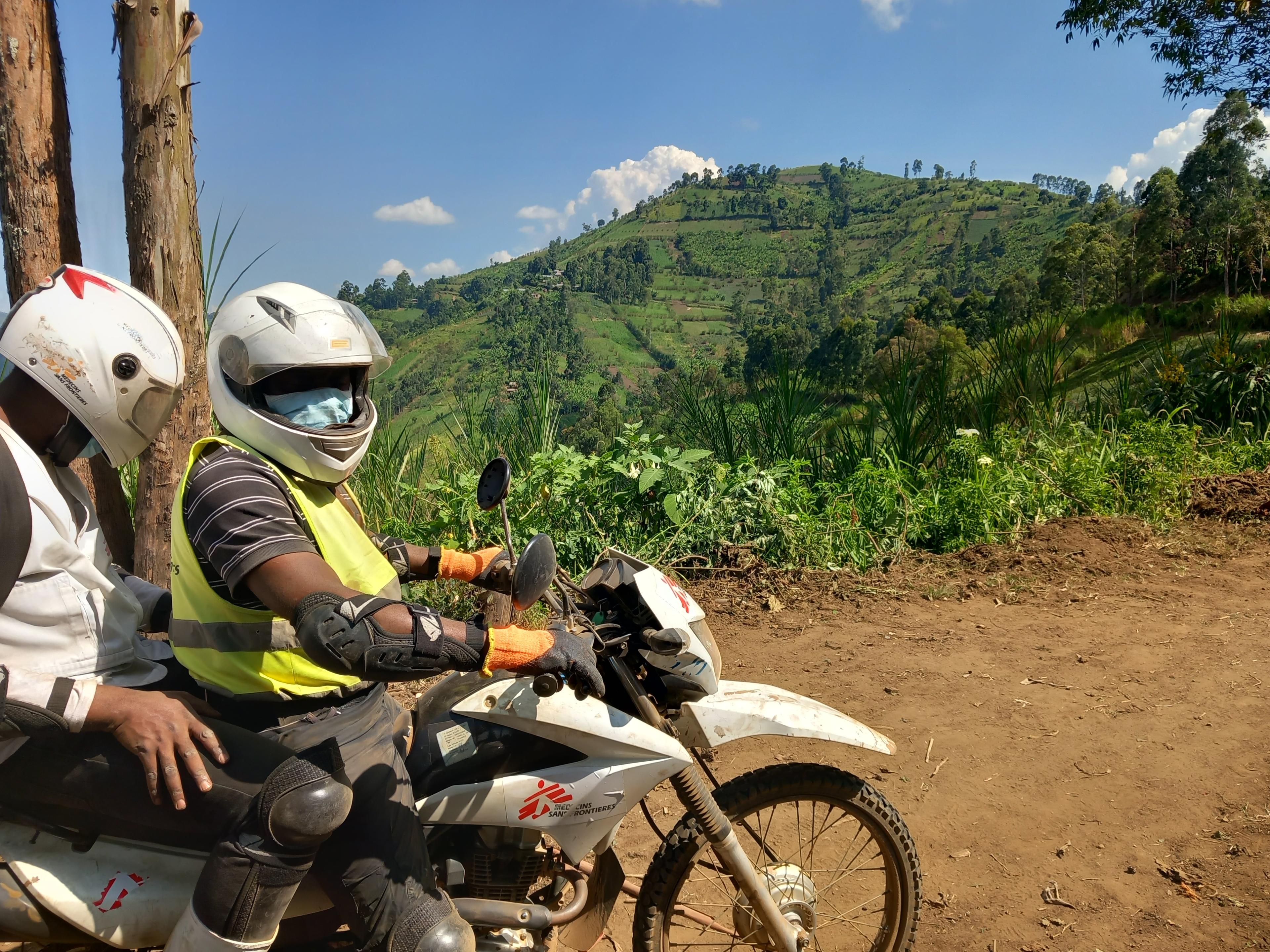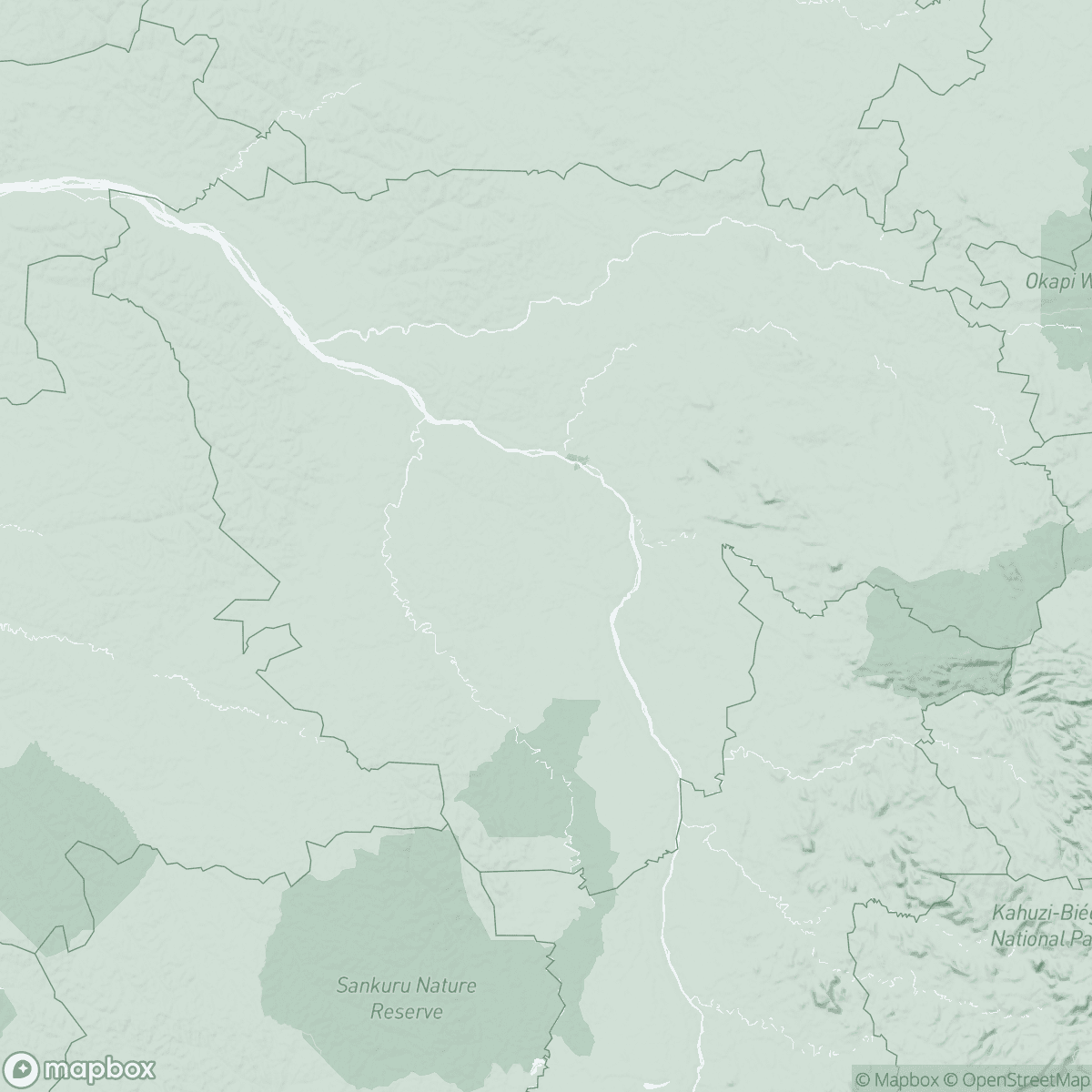
Masisi: a land of contrasts between wealth and poverty
In 1 click, help us spread this information :
Audrey Perl, Responsable de finances et résidente luxembourgeoise, a accompli sa première mission avec Médecins Sans Frontières (MSF) à Masisi, en République démocratique du Congo (RDC), de février jusqu’à août 2023. À son retour, elle témoigne des conditions de vie difficiles auxquelles est confrontée la population de l’est du pays et des défis relevés par les équipes de MSF sur place.
Audrey Perl, a finance manager based in Luxembourg, has just completed her first mission for Médecins Sans Frontières (MSF) in Masisi, in the Democratic Republic of Congo (DRC). On her return, she describes the difficult living conditions of the people in the east of the country and the challenges faced by MSF teams on the field.
The humanitarian situation in the DRC continued to deteriorate in 2023, mainly due to increased levels of armed violence, particularly the resurgence of the M23 armed group in North Kivu. Escalating conflict and insecurity forced nearly 600,000 people to flee their homes, in a province where 1.9 million people had already been displaced.
In this extremely precarious humanitarian context, Audrey's skills in accounting, treasury and budget management have supported MSF's projects, particularly in Masisi, in responding to the devastating effects of violence and other health emergencies such as epidemics and malnutrition.
The MSF project in Masisi is not new. It was established in 2007 to alleviate the devastating effects of the war and to respond to emergencies. Unfortunately, the situation in eastern Congo has not changed, and the temporary project is still relevant today. In fact, it has grown in size and importance and is highly respected in the region. Strict procedures have been put in place to operate in complete security, such as the implementation of a "zero cash project" - a policy implemented in certain MSF projects based on replacing cash payments with any other digital payment for security reasons.
Audrey's mission also included support to Masisi General Hospital and the four health centres (Masisi, Nyabiondo, Muheto, Ngomashi), some of which are particularly remote, to facilitate access to free medical care, including for the most isolated communities. The MSF team regularly responds to outbreaks of cholera and measles, two endemic diseases in the area, whose spread is exacerbated by frequent population movements.
Although MSF mobilises large numbers of health workers, support staff are still essential in the field, particularly for recruitment, but also for fighting corruption and collecting data for activity reports."
MSF staff working in most parts of eastern Congo face major access problems.
Most of the roads are dirt, so vehicles can't get through. Most trips are made by motorbike when conditions are favourable. Some trips end with a four-hour walk through the bush to reach the most remote health centres.
Masisi: A hospital to heal violence
The focus of Audrey's mission was to support the Masisi General Referral Hospital (HGR). MSF currently supports all services at the Masisi General Referral Hospital, which saw more than 14,500 admissions in 2022.
MSF began supporting the Masisi General Referral Hospital in 2007, when the area was the scene of violent clashes between armed groups.Fifteen years on, peace is still elusive in this part of eastern DRC, where recent estimates put the number of displaced people at 470,000 - a fifth of the total displaced in North Kivu.
In Masisi, insecurity has never ended, and neither has the emergency. But over the years, most humanitarian organisations have left the area. Now, after a semblance of calm in 2021, all indicators have turned red again since the beginning of 2022. Last year, Médecins Sans Frontières treated more than 740 victims of sexual violence in Masisi, 165 in the first quarter of 2023 alone.
When you enter Masisi General Hospital (HGR), the first thing you notice is the density of the population.Patients are only a few centimetres apart, and malnourished children sometimes lie two to a bed. Emergency wards are regularly opened to deal with measles and cholera epidemics.In vain, the hospital regularly reaches over 100% capacity."
The camps around Goma: the humiliation of reception
Audrey's experience in the DRC included a week's training in Goma and a two-week standby given the militarised context of the area.
In the camps on the outskirts of Goma, nearly 600,000 displaced people have been living for months in extremely precarious conditions, with inadequate access to food and exposure to violence. In some places, MSF teams have observed alarming mortality and malnutrition rates. United Nations agencies have recently announced that they are stepping up their efforts to meet the needs of people in the east of the country.
There is an urgent need to translate these intentions into assistance and protection that meets the needs on the ground.
Having worked with displaced people before, I found the situation in Goma particularly disturbing. There's a flood of people on both sides of the road, huddled together in makeshift tents. Families are often crammed together around a few pieces of wood supported by a tarpaulin. The situation is dire: pregnant women wait for hours in the sun for food, children don't go to school, and understaffed nurses and doctors run from one tent to the next where the sick are waiting".
MSF teams are working in twelve IDP sites around Goma, providing free medical care, distributing drinking water and building latrines and showers where they are most needed. MSF has also responded to outbreaks of cholera and measles in some camps by treating cases and organising vaccination campaigns, in which Audrey took part.
The vaccination campaign was carried out efficiently by MSF teams. I was part of a 'moving team', which meant that we carried all the vaccination equipment with us: vaccination documents, syringes, disinfectants, tables and chairs, and we moved every 20 minutes 500 metres within the area we had defined. This way, we can arouse curiosity and vaccinate a greater number of children".
MSF teams are also working in other locations in North Kivu province, as well as in Minova and Numbi in South Kivu, to improve access to health care in these areas, where tens of thousands of displaced people have taken refuge. In North Kivu, MSF continues to provide free primary health care in the health zones of Rutshuru, Kibirizi, Bambo, Binza, Mweso, Masisi and Walikale.
Thousands of victims of endemic sexual violence in desperate need of care
Audrey was also involved in the opening of a sexual health and maternity centre in Kazinga.
My MSF colleagues and I worked together to support the Kazinga health centre, based on our respective areas of expertise. My nursing colleagues took on the task of training the nursing staff on what to do when a woman has been sexually assaulted. For my part, with the help of Supply, I approved suppliers so that we could buy various non-medical equipment for the health centre (boards, nails, stationery, planks, coal, etc.).





